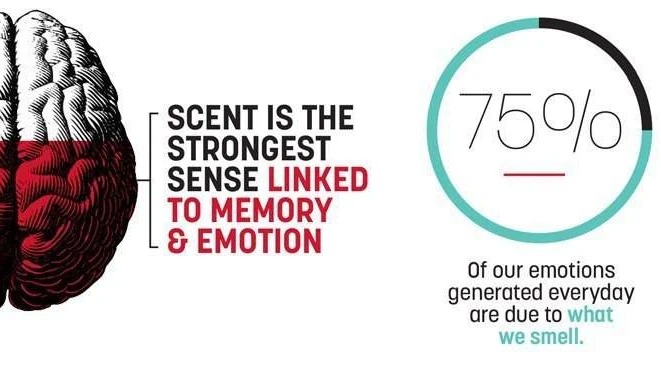Recent neuroscience research reveals that smell profoundly influences memory and mood by directly interacting with the brain's emotion and memory centers. Ancient practices and modern science converge, showing scent’s power in evoking vivid memories, improving well-being, and potentially supporting cognitive health in conditions like Alzheimer’s.
The sense of smell is more than just a gateway to perceiving fragrances—it plays a critical role in shaping our memories and emotions. Recent neuroscience findings illuminate how odors interact directly with brain regions responsible for memory and mood, contrasting with other senses and offering unique cognitive benefits. This evolving science echoes wisdom from ancient traditions that recognized scent’s profound psychological impact.
Direct Brain Connection:
Unlike other senses that route through the brain's thalamus, the olfactory system connects closely to the amygdala and hippocampus—centers of emotion and memory. This proximity explains why a familiar scent can instantly evoke deep, emotional memories from childhood or significant life events.
Emotional and Therapeutic Power:
Scents trigger emotional responses that influence physical well-being. Studies reveal that odor-evoked memories can reduce stress and inflammation markers and promote slower, deeper breathing, potentially improving cognition and mood.
Impact of Smell Loss:
Conditions like anosmia—loss of smell—are linked to negative mental health outcomes, underscoring smell’s crucial role in orienting us to the world and our past experiences. An impaired sense of smell may also presage neurodegenerative diseases such as Alzheimer’s and Parkinson’s, making smell an important diagnostic and therapeutic focus.
Olfactory Enrichment and Cognitive Health:
Emerging therapies involving aromatic stimulation during sleep or relaxation show promise in preserving memory and language skills. Alzheimer’s care centers are experimenting with scent-based reminiscence therapy aiming to revive lost memories and enhance quality of life.
Historical and Cultural Context:
Ancient cultures long revered fragrance for its connection to spirituality and memory. Today, neuroscience affirms these insights, showing that smell is deeply intertwined with the mind’s emotional and mnemonic fabric.
As science uncovers more about the mysterious sense of smell, its potent influence on memory and mood opens avenues for novel therapies and enriches our understanding of human cognition and emotional well-being.
Sources: Harvard Medical School, Brown University, PMC, UCLA Health, Vedanet.




